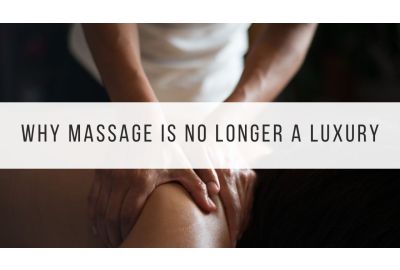Guest blog by David Jansen from Fascia Shop in the Netherlands.
Massage is often seen as a luxury, but is this actually true? Anyone who looks in the dictionary will read that luxury stands for opulence and excess. I personally do not see a massage as a luxury, but as a means to cope with the wealth and excess of our society. Almost all of us do it; mindlessly and seemingly effortlessly we enter the rat race of Western life. We are surrounded by iPads, smartphones and laptops all day long. The dividing line between work and private life is blurring and we want to be the best version of ourselves 24/7. We don’t have enough time to eat, and a night’s sleep makes way for worry time. The world around us is changing faster than evolution can keep up.
Made to Move
A person is made to move. For thousands of years we have gratefully used the functions with which our body is equipped, but then there was the technology revolution. Things like cars, elevators, televisions and computers were introduced. While this was initially seen as a positive step in human wellbeing, we now know that the opposite is true. Today, people spend an average of twelve hours sitting every day, which has major consequences for their health. Diseases are rampant and the number of people suffering from vague pain complaints is unprecedented. A logical explanation is that muscles are constantly slightly tense in a sitting position. A lot of waste products are released and they have nowhere to go due to the lack of muscle pumping action.
Stress
And then there is stress. In the time of our ancestors, the adrenal gland fired adrenaline, noradrenaline and cortisol when danger threatened. Nowadays, the presence of these stress hormones is structural rather than incidental. A system that is potentially useful attacks the body it is supposed to protect. The stimulating environment in which we immerse ourselves plays a major role in this.
The Importance of Feeling
In principle, touch is the first sense to develop. The reverse applies to deterioration. It remains in tact the longest. Humans are naturally good at feeling, but due to the changing society we do it less and less. And this is exactly the point of my message.
Massage Techniques
There are countless massage techniques available worldwide and for centuries. Although they differ in detail, they all basically do the same thing; stimulate blood flow and influence the autonomic nervous system. Waste products are removed, stress, pain, anxiety, tension and mood swings are reduced, sleep and self-confidence improve and even the immune system is positively influenced by an increase in the number of white blood cells. All these examples argue for the importance of massage. We Massage Therapists and Physiotherapists have of course known this for a long time, but we still have to defend ourselves from the environment on a regular basis.
Saving Social Costs
It is therefore clear that massage contributes to preventative maintenance of body and mind, but performing or undergoing it is still seen as a luxury and signals from the body are often ignored. How is that possible? How is it possible that we take our car to the garage for a service or repair without a second thought? How is it possible that we consider it almost a basic need to invest in a utensil, but that we have difficulty allowing ourselves to maintain our body? I don’t understand, I really don’t. Okay, a massage costs something. But that does not outweigh what it yields.
In addition to personal gain, massage can also contribute to savings on social costs. The professional association for physiotherapists has conducted research into the benefits of physiotherapy interventions for chronic patients. This study showed that the saving per person is almost 200 euros. People have to go to the hospital less, drop out of work less, and the number of divorces is also lower. These figures cannot be extended like-for-like to massage therapists, but at the very least this information provides food for thought.
Fascia Therapy
A hands-on form of therapy that I am very enthusiastic about is fascia therapy. For a long time it was thought that fascia was just sheaths, but today we know better. Each tissue has its own fascia; a candyfloss-like network that plays an important role in communication with the rest of the body. Fascia are also sometimes seen as a connection between body and mind, because they react strongly to stress. Stress increases the tension of the fascia. If this is the case for a long time, adhesions develop. These adhesions disrupt communication, causing coordination skills to decline, resulting in complaints. You will be surprised in how many cases fascia treatment can lead to improvements in wellbeing!
I don’t think we can ignore it. Massage serves many purposes and is wrongly seen as a luxury.
Let me introduce myself… David Jansen
When, as a 22-year-old, I treated my first patient in the practice that my father and I had setup from home, I felt both nervous and honoured. On 18th August 2011, at 8:45am, my wish to actively pursue my profession came true. Today I still work with great passion as a massage and physiotherapist. I enjoy not only treating, but all aspects of the profession. When I started my own practice, I discovered that in addition to being a practitioner, I also became an entrepreneur – a combination that suits me perfectly. We now offer the products that I am enthusiastic about as an expert through our webshop, Fascia Shop. What started as a modest practice has grown into a valuable care centre in fourteen years.

